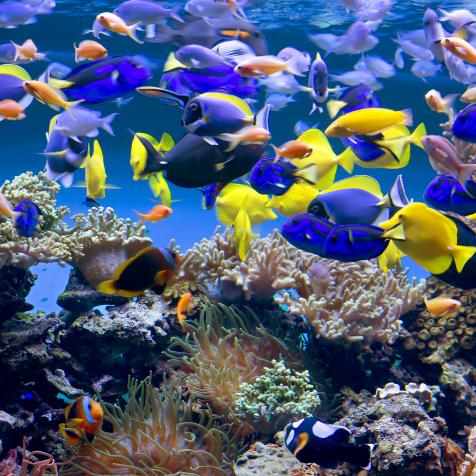
Westend61
Surfers Fight to Protect the Maldives’ Waves
A group of surfers in the Maldives has joined forces with grassroot activists and conservation groups in an attempt to protect surf on the paradisiacal island.
Led by the Save the Waves Coalition, the campaign called “Save Our Waves Maldives”, focuses on stopping development and infrastructure projects that are compromising some of the Maldives’ most precious surf spots.
A trend has been developing in the Maldives in recent years, which has seen numerous pristine surf ecosystems severely impacted, or even completely destroyed by private construction and infrastructure projects.

Konstantin Trubavin / Aurora Photos
“The Maldives contain a treasure trove of surf ecosystems that have incredible biological, social and economic value, yet have not been protected from rampant coastal development — not to mention the long-term impacts from climate change,” says Trent Hodges, Conservation Programs Manager for Save The Waves, an organization dedicated to protecting surf ecosystems.
Surfing is a vital activity to locals as the islands are a popular international surf tourism destination, bringing a thriving surf economy, and creating numerous jobs.
Currently, there are around 20 waves — including two of the country's best — that are immediately threatened by an ongoing infrastructure project, or have already been damaged or lost due to development.
The Chickens and Cokes waves are considered the best and most accessible in the Maldives, a country made up of almost 1,200 islands south of India. Chickens have been significantly altered due to the construction of a seawall on the island. Construction can damage reef ecosystems by killing corals directly or degrading habitat, which can lead to a loss in tourism revenue that depend on reef-based tourism and reduce fish populations. Coastal construction can also cause chronic sedimentation, industrial discharge, changes in water flow and runoff, all of which can affect coral reef growth rates and the way the reefs metabolise. Sedimentation can smother reefs, meaning they have less light access, which they need to grow.
Worldwide, reducing coastal development, or at least the impact it has — is critical to preserving not just the waves but the entire marine habitat. It threatens nearly a quarter of the world’s reefs, particularly in Southeast Asia, and the Atlantic and Indian oceans, where the Maldives is situated.
“The government has an obligation and opportunity to protect these resources that provide measurable benefits for local communities and economies,” Hodges added.
Careful planning and government regulations, such as restricting development within a certain distance from the shoreline, can reduce effects.

Richinpit
The Government of Maldives has committed to adopting a legally binding Marine Spatial Plan, which would designate at least 20% of the Maldives’ waters as fully protected marine areas. Additionally, the Government of Maldives signed on to the Global Oceans Alliance earlier this year to protect 30% of global oceans by 2030. Meanwhile, the Save Our Waves Maldives campaign is sitting in on stakeholder meetings to ensure surf ecosystems are part of the strategy to protect the local coastline. More than 5,000 have signed a petition to protect the surf breaks, while locals on the ground have been documenting dozens of popular surf spots that have completely disappeared due to developments.


















